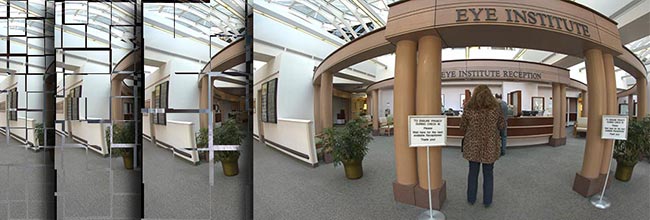
The University of Iowa
Department of Ophthalmology and Visual Sciences
July 13, 2015

Many people advocate starting the job search two years prior to graduating. Before beginning the search there are several important decisions you need to make. First, decide if you see yourself in a subspecialty or in a comprehensive ophthalmology setting. Next, consider if you would prefer to work in academics, private practice (solo or with a group as an associate or partner), or a health management organization (with or without partnership opportunity). If you like teaching or research, an academic career might be the best fit. If you envision yourself seeing a large number of patients and/or enjoy making practice management decisions, a private practice might be best. Working for a health management organization is often a compromise between academics and private practice. Like private practice, there may be less overhead costs and less emphasis on research and teaching. Similar to academics, there are often less physician-based decisions related to management of the business. Once the decision about practice type is made then consider where you would like to live and start the search.
![]() Before applying for a job you will need a clear and concise CV. A CV is longer than a resume and speaks largely to an academic audience. Most physicians will have a CV rather than a resume when searching for a job. You should have a complete CV, but tailor it to the specific job for which you are searching. For example, when preparing a CV for an academic position, you should emphasize research accomplishments, peer reviewed papers, leadership/teaching roles and presentations. A CV for an academic position is often longer than one for a private practice position, which is generally kept to two pages. Create a CV early in residency and continually update it so that it is ready to send when a desired job opportunity becomes available.
Before applying for a job you will need a clear and concise CV. A CV is longer than a resume and speaks largely to an academic audience. Most physicians will have a CV rather than a resume when searching for a job. You should have a complete CV, but tailor it to the specific job for which you are searching. For example, when preparing a CV for an academic position, you should emphasize research accomplishments, peer reviewed papers, leadership/teaching roles and presentations. A CV for an academic position is often longer than one for a private practice position, which is generally kept to two pages. Create a CV early in residency and continually update it so that it is ready to send when a desired job opportunity becomes available.
 Network with people who are in communities where you could see yourself living. A great place to do this is at the American Academy of Ophthalmology (AAO) annual meeting.
Network with people who are in communities where you could see yourself living. A great place to do this is at the American Academy of Ophthalmology (AAO) annual meeting. As you near graduation from residency, you will likely be contacted by a number of recruiters. Most will contact you by email, but some might go so far as to page you away from clinic. Hiring a recruiter is a personal decision and it should be known that there is no cost to the job candidate. Practices hire recruiters to assist in finding a suitable candidate. This is often beneficial for practices that do not have the resources or time to devote to the candidate recruitment process. Some jobs are only available through a recruiter.
If you do decide to use a recruiter to expand your job search, there are a few things you should keep in mind. First, you should find out how the recruiter is paid. Retainer recruiters are paid for services rendered to the practice and contingency recruiters are paid only if a candidate is placed. Retainer recruiters likely offer a more comprehensive job search as they do not have incentive to place you in a specific practice. Second, it should be understood that many initial negotiations (e.g., salary) will likely be negotiated via the recruiter rather than directly with the practice (2).

Your first job will often be trying to recruit and impress you, an experience considerably different from residency/fellowship interviews and the match system.
Once you have interviewed at several jobs, you may be presented with an offer and contract (or more than one offer). Some systems, like Mayo Clinic, will extend offers, but not formal employment contracts. If you do receive a contract, it is important to know your needs and to understand the terms of the contract from the employer's perspective. Always have a lawyer review your first contract. The legal wording of contracts can be foreign to medical professionals and, if nothing else, should be translated into meaningful terms so that you know what you are signing (3). A contract lawyer can also help to smooth the negotiation process so that the physician's best interests are kept in mind while not offending the potential practice with unrealistic or unreasonable requests. There are many contract lawyers. Some lawyers even specialize in ophthalmology contracts. The best way to find someone is to ask your colleagues or other ophthalmologists about the lawyers they used.
One component of the employment contract is the salary. Salary is often determined by the local market (4). Academic, government, and non-profit salaries are often public knowledge, though the bonuses that may supplement these salaries typically are not. Most jobs offer a guaranteed salary for the first two years followed by production-based salary. Most ophthalmology jobs eventually follow a production-based compensation model that is based on relative value units (RVUs). RVUs are a measure of value designated by Medicare for physician reimbursement and can change annually. However, all third-party payers also use the RVU for physician reimbursement. You should find out the amount you will be paid per RVU earned. It is also important to find out the average RVUs generated by the physicians in the practices you are considering. Reimbursement can also be affected by overhead, which is all of the expenses that the practice incurs aside from physician compensation. It is important to find out the average overhead for ophthalmologists in the region you are searching for a job and compare this number to your potential practice (5).
Finally, one of the most common findings in a contract is a restrictive covenant or non-compete clause. A restrictive covenant is a provision that prohibits you from practicing medicine within a certain geographic area for a specified amount of time after you leave the practice. The geographic area is often narrower in a large city (i.e. 2-5 miles) and wider in a rural area (i.e. 25-50 miles). Restrictive covenants are designed to protect the employer's interests. There is no benefit to the employee. Many restrictive covenants are unreasonable and often do not hold up in court if broken, but it is important to carefully consider this part of the contract if you are certain you would like to practice in a specific geographic region. Several states do not recognize the validity of restrictive covenants.
Finding your first job in ophthalmology can seem intimidating at first, but it is also a rewarding opportunity to learn how different practices are structured as well as to explore various geographic regions so that you can make the best choice for your future career. Remember that if you initially do not end up in the right job you can always relocate. A 2008 American Academy of Ophthalmology survey of young ophthalmologists found that one in four ophthalmologists change jobs after a few years of starting their first job (6). Other studies show as many as 80% of ophthalmologists change jobs within the first 3 years of starting their first job (3).
McAllister A, Gauger E, Oetting T. Finding your First Job in Ophthalmology: A Guide for Residents. EyeRounds.org. posted July 13, 2015; Available from: http://www.EyeRounds.org/tutorials/finding-first-job/